 The Deadliest Sin (Crispin Guest Medieval Noir #15) by Jeri Westerson
The Deadliest Sin (Crispin Guest Medieval Noir #15) by Jeri Westerson Format: eARC
Source: supplied by publisher via NetGalley
Formats available: hardcover, ebook
Genres: historical fiction, historical mystery, mystery
Series: Crispin Guest #15
Pages: 224
Published by Severn House Publishers on December 7, 2021
Purchasing Info: Author's Website, Publisher's Website, Amazon, Barnes & Noble, Kobo, Bookshop.org
Goodreads
Crispin Guest is summoned to a London priory to unmask a merciless killer. Can he discover who is committing the deadliest of sins?
1399, London. A drink at the Boar's Tusk takes an unexpected turn for Crispin Guest, Tracker of London, and his apprentice, Jack Tucker, when a messenger claims the prioress at St. Frideswide wants to hire him to investigate murders at the priory. Two of Prioress Drueta's nuns have been killed in a way that signifies two of the Seven Deadly Sins, and she's at her wits end. Meanwhile, trouble is brewing outside of London when the exiled Henry Bolingbroke, the new Duke of Lancaster, returns to England's shores with an army to take back his inheritance. Crispin is caught between solving the crimes at St. Frideswide's Priory, and making a choice once more whether to stand with King Richard or commit treason again.
My Review:
Pride is one of those infamous “Seven Deadly Sins”. It’s also the one that “goeth before destruction, and an haughty spirit before a fall”, at least according to Proverbs 16, verse 18 of the King James Version of the Bible. Which was still more than two centuries in the future at the close of this final book in the Crispin Guest series.
Which does not make the verse any less apropos.
Because this is a story about pride. The blind pride of the Prioress at St. Frideswide’s Priory, the ambitious pride of Henry of Bolingbroke, the long-ago pride and puissance of the late John of Gaunt, the privileged but unearned pride of Richard of Bordeaux, and last but not least the battered pride of Crispin Guest, once lord, former knight, convicted traitor to the king that is about to be deposed, but loyal to the death to the king that is about to be.
But while all this pride is swirling in the air and down the length and breadth of England, someone is killing the Holy Sisters of St. Frideswide’s Priory and staging their bodies in a gruesome parody of the mural of the Seven Deadly Sins that serves as a chilling backdrop to the reliquary of St. Frideswide’s relics.
Even if some of those relics have been stolen. After all, greed is also one of those seven deadly sins.
Crispin Guest has been reluctantly (very reluctantly) called to the Priory to investigate a string of murders. It’s what he does as the infamous “Tracker of London”. The Prioress’ grudging cooperation and high-handed stonewalling isn’t enough to keep him from figuring out who committed the crimes, but his distraction over the changes sweeping the country and the monarchy make the solution more elusive than it should be.
On every side.
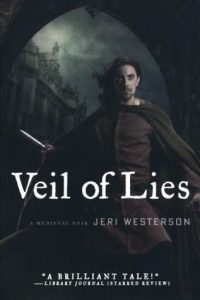 Escape Rating A-: Not every historical mystery series involves itself as much with the politics of its day along with the mystery, but from this reader’s perspective it seems like the best ones do, going all the way back to Ellis Peters’ Brother Cadfael series along with Candace Robb’s Owen Archer and C.S. Harris’ Sebastian St. Cyr series right alongside Crispin Guest. All these series take place during one succession crisis or another in English history, and all of the detectives had some involvement, great or small, in the roiling political climate of their day.
Escape Rating A-: Not every historical mystery series involves itself as much with the politics of its day along with the mystery, but from this reader’s perspective it seems like the best ones do, going all the way back to Ellis Peters’ Brother Cadfael series along with Candace Robb’s Owen Archer and C.S. Harris’ Sebastian St. Cyr series right alongside Crispin Guest. All these series take place during one succession crisis or another in English history, and all of the detectives had some involvement, great or small, in the roiling political climate of their day.
(If you’re wondering, the Cadfael series takes place during the succession war between King Stephen and Empress Maud, Owen Archer protects the city of York as the curtain goes up on the Wars of the Roses, Crispin Guest is collateral damage in that same war as it heats up and royal heads start rolling, while St. Cyr is operating during the Regency, which was itself an inventive solution to the succession crisis that followed in the wake of George III losing the American Colonies and his mind.)
The politics were built into this series from its beginning, all the way back in Veil of Lies, published in 2008. At that point, Crispin had lost everything except his life as part of a plot to push Richard II off the throne and put John of Gaunt on it. (The Wars of the Roses happened because Edward III had too many sons who survived to reproduce, and all of them fought over who had the right to be king in one succession crisis after another from Edward’s death in 1377 to Richard III’s death at Bosworth Field in 1487.
So readers have followed along with Crispin as he learned to be a commoner, and as he honed his skills as the “Tracker of London”. By the time this story takes place in 1399, Crispin has been the Tracker for 15 years. He’s not just learned to survive, but he’s actually become mostly content with his circumstances, only for his entire life to be upended once again.
Crispin’s final case is a troubling one. Someone is murdering nuns inside a closed priory and posing their bodies in horrific tableaus. The Prioress wants the murders solved, but stands in the way of Crispin’s every attempt to solve them. She has her own vision of the work and life of her priory, and doesn’t want anyone to spoil her illusions.
As if three, then four dead sisters didn’t spoil it quite enough.
Without forensics, Crispin is forced to rely on his wits, his memory, and on his opponent making a mistake, while he’s distracted by events in the kingdom that might serve as vindication for his long-ago trials, or that might change his life. Meanwhile, the priory that is supposed to be a haven of religious service is actually a hotbed of sin, vice and favoritism that the prioress doesn’t want Crispin to see – or expose.
The situation is a mess, as so many of the situations Crispin gets himself into are. It’s also an unexpected ending. An ending that Crispin is afraid to anticipate out of fear of having his hopes dashed yet again.
I was sorry to see this much-beloved series come to an end, although the end is in all ways fitting, as Crispin’s journey from disgrace to penitence to vindication has come full circle. But there’s this niggling sensation at the end that, as content as Crispin now is with his restored life and honors, he misses the intellectual challenge of being the Tracker. And that it might just be possible to lure him back.
I sincerely hope so.

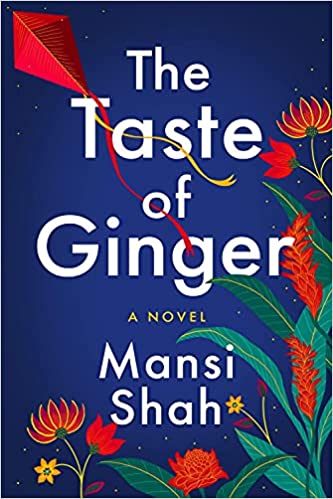 The Taste of Ginger by
The Taste of Ginger by 
 Forever Home (Dogwood County, #2) by
Forever Home (Dogwood County, #2) by  The suspense element was suspenseful in a surprising way, in that the obvious perpetrators were both obvious and not obvious at the same time.
The suspense element was suspenseful in a surprising way, in that the obvious perpetrators were both obvious and not obvious at the same time.
 Mr. Dale and The Divorcée (The Brazen Beauties #1) by
Mr. Dale and The Divorcée (The Brazen Beauties #1) by 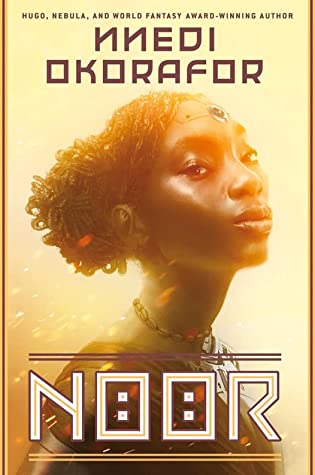 Noor by
Noor by 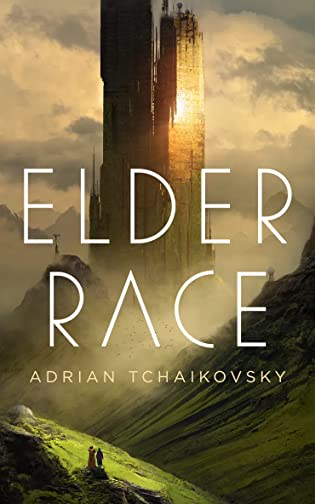 Elder Race by
Elder Race by 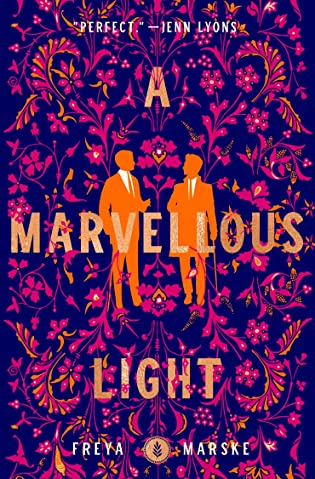 A Marvellous Light (The Last Binding, #1) by
A Marvellous Light (The Last Binding, #1) by 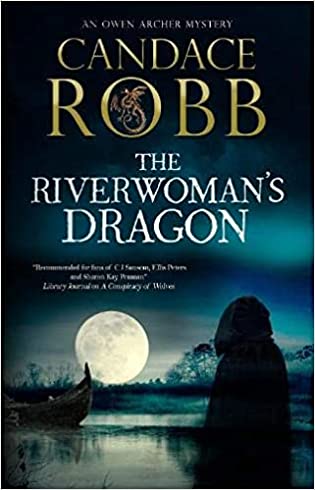 The Riverwoman's Dragon by
The Riverwoman's Dragon by 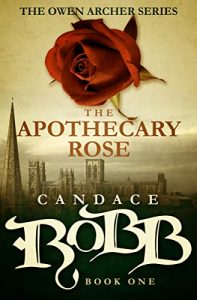 As this series has continued from its beginning in
As this series has continued from its beginning in 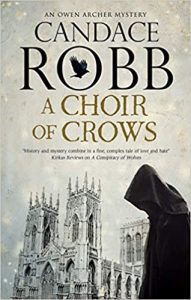 She’s a wisewoman who might just be a practitioner of real magic. Or might just be an old woman who has experienced a lot, shares the wisdom she has gathered in her long life, and just occasionally dreams that she is a dragon swimming in the river. That this particular question is never really answered feels like an integral part of her mystery.
She’s a wisewoman who might just be a practitioner of real magic. Or might just be an old woman who has experienced a lot, shares the wisdom she has gathered in her long life, and just occasionally dreams that she is a dragon swimming in the river. That this particular question is never really answered feels like an integral part of her mystery.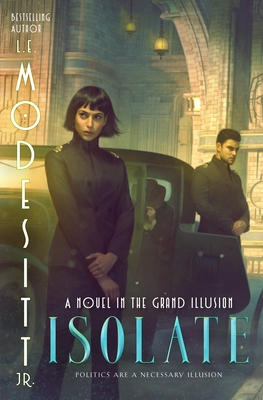 Isolate (The Grand Illusion #1) by
Isolate (The Grand Illusion #1) by 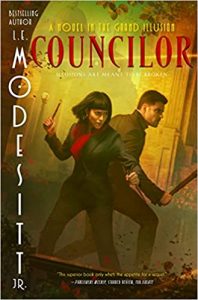 Instead, it ends up being the story of three people doing the best that they can to help their country in spite of everyone who tries to get in their way. In the process, they all rise above the place they expected to be, and that’s just the kind of story I love to sink into.
Instead, it ends up being the story of three people doing the best that they can to help their country in spite of everyone who tries to get in their way. In the process, they all rise above the place they expected to be, and that’s just the kind of story I love to sink into.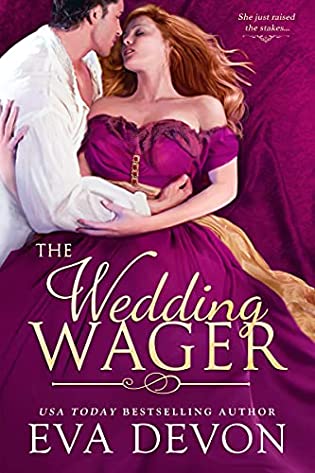 The Wedding Wager by
The Wedding Wager by